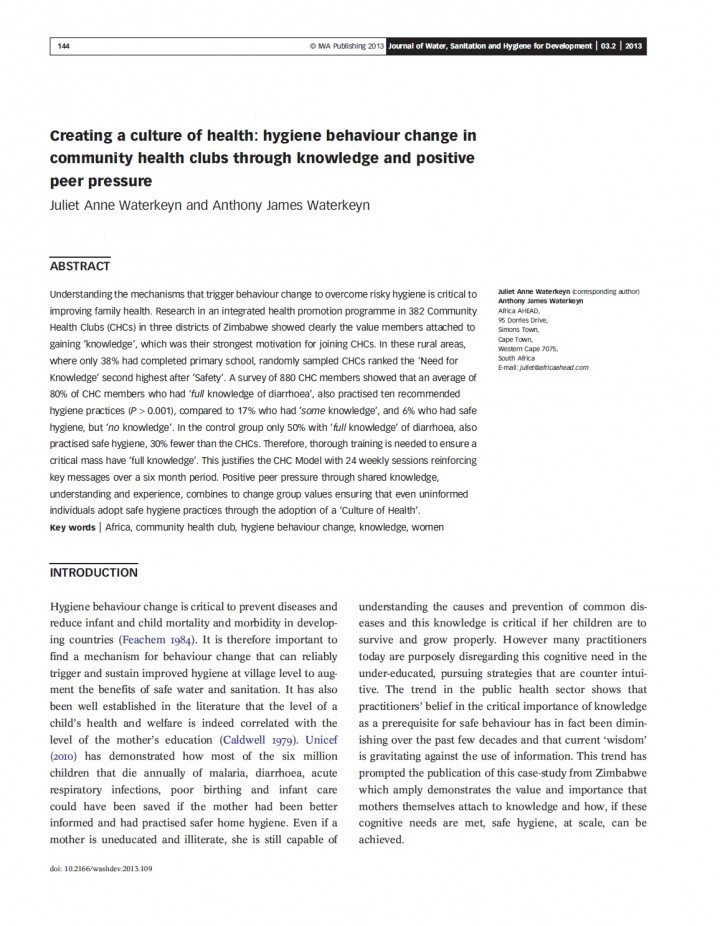Creating a Culture of Health: Hygiene Behaviour Change in Community Health Clubs Through Knowledge and Positive Peer Pressure
Waterkeyn, J., Waterkeyn, A. (2013)

Published in: 2013
Pages: 13
Publisher:
IWA Publishing
Author:
Waterkeyn, J., Waterkeyn, A.
Uploaded by:
SuSanA Admin
Partner profile:
common upload
1089 Views
11 Downloads
Understanding the mechanisms that trigger behaviour change to overcome risky hygiene is critical to improving family health. Research in an integrated health promotion programme in 382 Community Health Clubs (CHCs) in three districts of Zimbabwe showed clearly the value members attached to gaining ‘knowledge’, which was their strongest motivation for joining CHCs. In these rural areas, where only 38% had completed primary school, randomly sampled CHCs ranked the ‘Need for Knowledge’ second highest after ‘Safety’. A survey of 880 CHC members showed that an average of 80% of CHC members who had ‘full knowledge of diarrhoea’, also practised ten recommended hygiene practices (P > 0.001), compared to 17% who had ‘some knowledge’, and 6% who had safe hygiene, but ‘no knowledge’. In the control group only 50% with ‘full knowledge’ of diarrhoea, also practised safe hygiene, 30% fewer than the CHCs. Therefore, thorough training is needed to ensure a critical mass have ‘full knowledge’. This justifies the CHC Model with 24 weekly sessions reinforcing key messages over a six month period. Positive peer pressure through shared knowledge, understanding and experience, combines to change group values ensuring that even uninformed individuals adopt safe hygiene practices through the adoption of a ‘Culture of Health’.
Bibliographic information
Waterkeyn, J., Waterkeyn, A. (2013). Creating a Culture of Health: Hygiene Behaviour Change in Community Health Clubs Through Knowledge and Positive Peer Pressure. IWA Publishing
Filter tags
English















